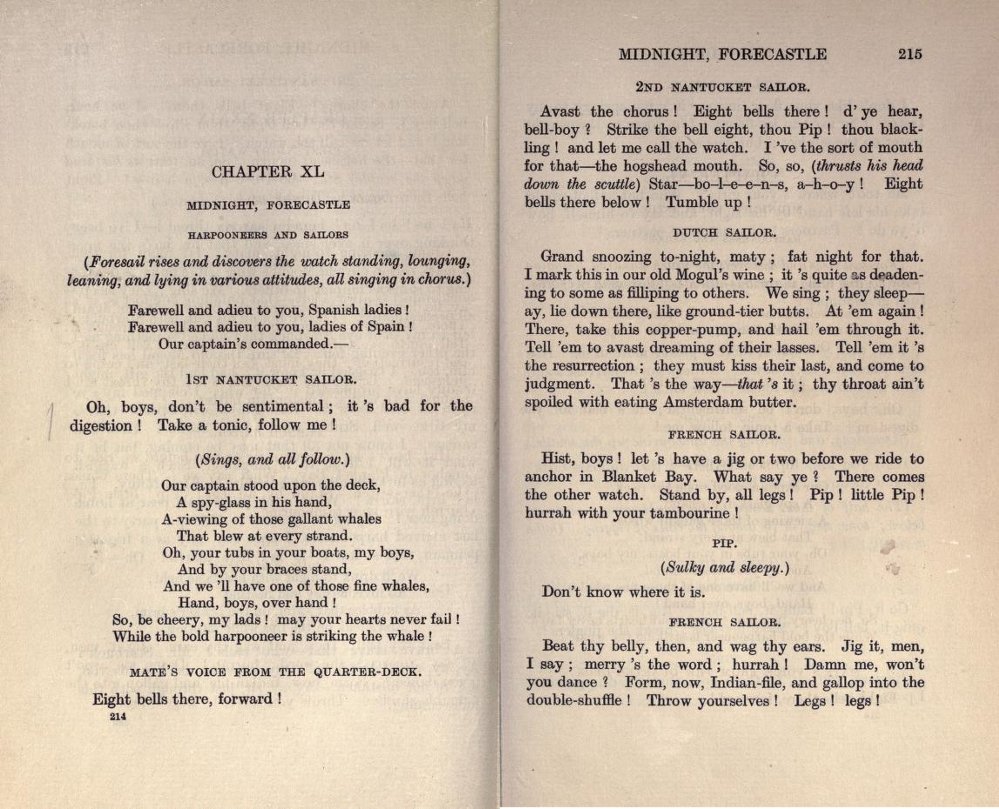Module 5: Drama
3. Herman Melville: Moby-Dick or, The Whale #
This example features the first two pages of chapter 40 of Herman Melville’s novel Moby Dick:
This example nicely illustrates a mixture of different genres. The main structure is a novel, divided in chapters, most of which consist of narrative paragraphs. However, this chapter (recognisable as such by the heading “Chapter XL”), has the form of embedded drama, with speeches (<sp>), containing indications of the speaking characters (<speaker>) and the speech contents. Moreover, some of the speeches of this drama fragment consist of prose paragraphs (<p>), while others are expressed in verse lines (<l>). The second speech on p. 214 even mixes paragraphs and verse lines. Notice, also, how stage directions (<stage>) occur between speaker indications and speech contents. The first speech of p. 215 contains an embedded stage direction.
Of course, the main structure of this text will have the form of a novel, consisting of chapter text divisions, without any traditional drama front matter (such as cast lists, epilogues, etc.).
Bibliography
- Ibsen, Henrik. 1918. The Wild Duck. New York: Boni and Liveright, Inc.. Encoded and made available by the University of Virginia Library, Text Collection at https://etext.lib.virginia.edu/toc/modeng/public/IbsWild.html.
- Marlowe, Christopher. 1616. The Tragedie of Doctor Faustus. Encoded and made available by the Perseus Digital Library. Available online at https://www.perseus.tufts.edu/hopper/text?doc=Perseus:text:1999.03.0011.
- Melville, Herman. 1922. Moby-Dick or, The Whale. London, Bombay, Sidney: Constable and Company LTD. p. 214–215.. Facsimile available from Internet Archive at https://www.archive.org/details/mobydickorwhale01melvuoft.
- Shakespeare, William. 1594. Titus Andronicus. Encoded and made available by the Perseus Digital Library. Available online at https://www.perseus.tufts.edu/hopper/text?doc=Perseus:text:1999.03.0037.
- Wilde, Oscar. 1930. “The Importance of Being Earnest.” In: Plays, Prose Writings and Poems. London: Everyman. Encoded and made available by CELT: Corpus of Electronic Texts: a project of University College, Cork. Available online at https://www.ucc.ie/celt/published/E850003-002/.



